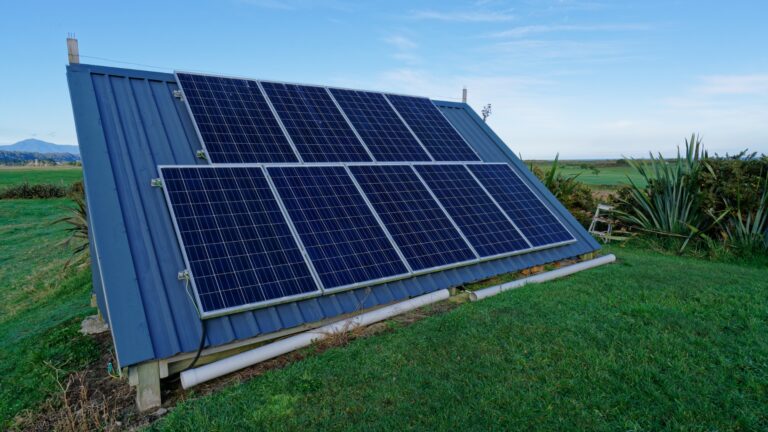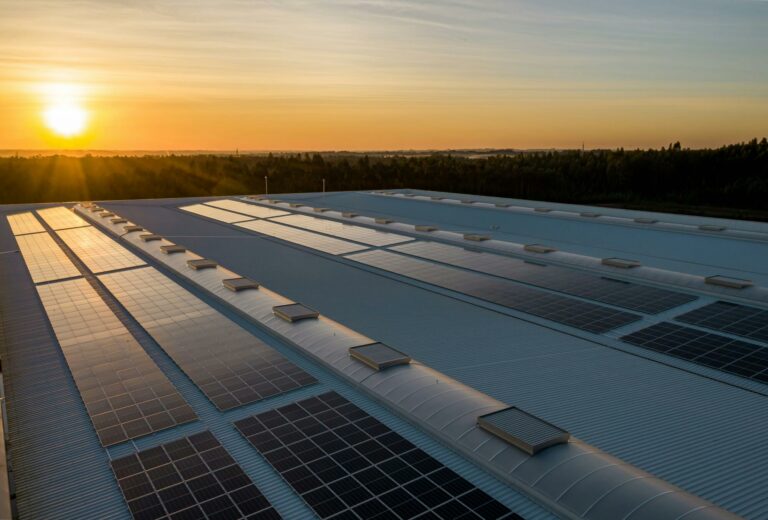Imagine flipping a switch and watching your energy bills plummet while contributing to a greener future. This isn’t just a daydream. It’s a reality made possible through Indiana solar rebates.
Navigating the world of solar rebates in Indiana can seem like a complex labyrinth. This article is your compass. It aims to guide you through the intricacies of eligibility, application processes, and maximizing financial returns.
As the sun shines over the Hoosier State, it brings more than just light. It offers an opportunity for savings and sustainability.
Ready to harness the power of the sun and reap the benefits of Indiana’s solar rebates? Let’s embark on this enlightening journey together.
Indiana Solar Rebates: An Overview
Solar rebates in Indiana are essential tools for those considering solar energy. They’re not just discounts; they’re part of a broader strategy to make solar power affordable and accessible.
In Indiana, these rebates take various forms significantly lowering the initial cost of solar panel installation. They’re designed to encourage both individuals and businesses to invest in solar panels, aligning with Indiana’s commitment to green energy.
The impact of these rebates goes beyond immediate cost savings. They play a crucial role in Indiana’s journey towards a sustainable energy future. This initiative is supporting the state’s environmental goals and aiding in the transition to renewable energy sources.
It makes investing in solar panels not only an environmentally sound decision. It is also a financially smart one for Hoosiers.
Eligibility Criteria for Indiana Solar Rebates
Eligibility for solar rebates requires meeting specific criteria that ensure the efficiency and effectiveness of the solar systems installed. If you’re considering solar energy, your system should be less than one megawatt in size to participate in net metering. This allows for credit on excess electricity generated.
The equipment installed must be new, adhering to energy efficiency standards. This includes:
- Air-source heat pumps
- Geothermal heat pumps
- Electric water heaters
Certain programs mandate a post-installation inspection and validation through an invoice.
Technical compliance is also crucial. Your solar system must align with the technical specifications outlined in the rebate programs. These criteria ensure that your installation is efficient and contributes to energy-saving goals.
Additionally, installation deadlines are often set, requiring the system to be operational by a specific date for rebate eligibility.
Types of Solar Rebates Available in Indiana
In Indiana, residents and businesses have access to a variety of solar rebates. As mentioned before, these rebates make investing in solar energy systems more achievable and financially sensible. These incentives fall into different categories.
State Rebates and Tax Credits
Indiana offers state-specific rebates and tax credits for solar panel installation. These can significantly reduce the upfront cost of solar systems, making them more accessible to a broader range of people.
Federal Solar Tax Credit
This one is also known as the Investment Tax Credit (ITC). This federal incentive allows you to deduct a significant percentage of your solar system cost from your federal taxes. The credit is a substantial financial incentive for those looking to invest in solar technology.
Local Utility Rebates
Many local utilities in Indiana offer rebates for solar installations. These rebates can vary based on your location and the utility company. They often include incentives for installing energy-efficient systems and may cover a portion of the installation cost.
Performance-Based Incentives
In some cases, there might be incentives based on the performance of your solar system. These incentives typically reward the actual energy production of your solar panels over time.
Net Metering Programs
Indiana’s net metering program allows solar system owners to receive credit for any excess energy their system produces. This energy is sent back to the grid, and the system owner receives a credit on their utility bill. As a result, it effectively lowers their overall energy costs.
Each of these incentives has its own set of eligibility criteria and benefits. They can often be combined to maximize savings.
Steps to Applying for Tax Rebates
Applying for solar rebates in Indiana is straightforward, but it requires attention to detail. Start by exploring the different rebates available, including state, federal, and local utility options.
Once you’ve identified potential rebates, check their eligibility requirements. These often include specifics about your property and solar system.
Next, gather all necessary documents, like property proof and details about your solar installation. Filling out the application forms accurately is crucial, so take your time to ensure all information is correct.
Remember, deadlines are important. Submit your applications early to avoid last-minute issues. If you’re working with a solar installer, they can often help with the process, especially in understanding the technical aspects of your system.
After submission, keep track of your application’s progress. Be ready to provide any extra information if asked.
Financial Gains with Indiana’s Solar Rebates
Understanding and maximizing the financial benefits of solar rebates in Indiana requires strategic planning and awareness of common pitfalls.
Financially, solar rebates can significantly lower the initial cost of solar panel installation. When coupled with long-term energy savings, the return on investment becomes even more attractive.
To make the most of these rebates, consider the timing of your installation and the specifics of each program. That way, you can combine state, federal, and utility rebates, and yield the greatest savings.
However, it’s crucial to avoid common mistakes. One key error is overlooking eligibility details, which can lead to disqualification. Another is missing application deadlines, which are strict and non-negotiable.
Additionally, underestimating the total cost and savings potential can lead to unrealistic expectations.
- Be meticulous in your approach
- Ensure eligibility
- Apply on time
With these, you can effectively leverage Indiana’s solar rebates to achieve the best financial outcome from your solar investment.
Embrace the Future with Indiana Solar Rebates
Indiana solar rebates offer an exceptional opportunity for both cost savings and environmental stewardship. By understanding and utilizing these rebates effectively, you can make a significant impact on your energy expenses and carbon footprint.
Are you ready to take the next step towards a sustainable future? Huston Solar is your trusted partner in this journey. With our expertise in cutting-edge solar solutions and commitment to customer satisfaction, we ensure a seamless transition to solar energy.
Request a quote with Huston Solar today and harness the power of the sun with Indiana’s solar rebates.



